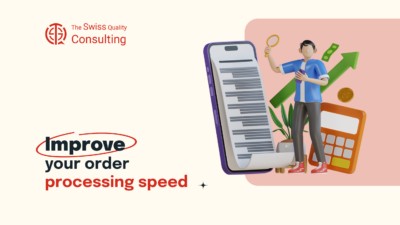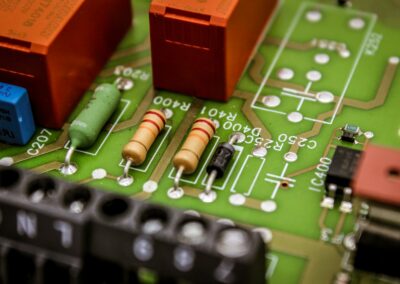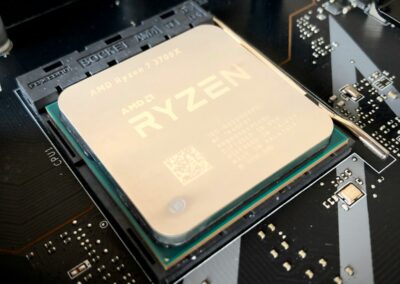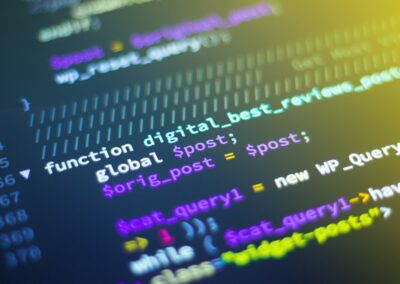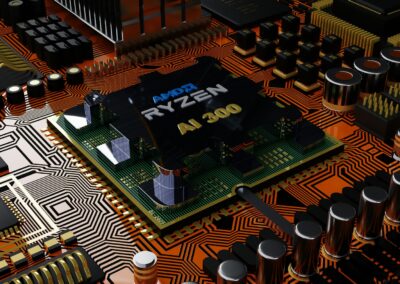Understanding the Critical Role of Data Processing Speed in IoT
Why Data Processing Speed is Essential in IoT Platforms
Data processing speed in IoT platforms is a critical factor that directly impacts the efficiency and effectiveness of IoT deployments. As businesses and governments in regions like Saudi Arabia and the UAE increasingly rely on IoT technology, the ability of these platforms to process data quickly and accurately becomes paramount. In dynamic environments like Riyadh and Dubai, where IoT devices are integral to smart city projects, industrial automation, and public safety, the speed at which data is processed can significantly influence decision-making and operational outcomes.
Fast data processing enables real-time analytics, which is essential for applications that require immediate responses, such as traffic management, predictive maintenance, and emergency services. In contrast, slow data processing can lead to delays, bottlenecks, and missed opportunities, undermining the value of IoT investments. For business executives and entrepreneurs in the Middle East, understanding how different IoT platforms handle data processing is crucial for selecting the right solution that aligns with their operational needs and strategic goals.
Moreover, data processing speed affects the overall scalability and sustainability of IoT projects. As the number of connected devices grows, the volume of data generated increases exponentially. A top-tier IoT platform must be able to process this data efficiently to maintain performance and support the continuous expansion of IoT networks. For businesses aiming to lead in innovation and digital transformation, particularly in competitive markets like the UAE and Saudi Arabia, investing in an IoT platform with superior data processing capabilities is a strategic imperative.
Factors Influencing Data Processing Speed in IoT Platforms
Several factors influence data processing speed in IoT platforms, each of which must be carefully considered when evaluating potential solutions. One of the primary factors is the platform’s architecture, including its data storage, retrieval, and processing mechanisms. Platforms that utilize advanced technologies such as edge computing and in-memory processing typically offer faster data processing speeds by reducing the distance data must travel and minimizing latency.
Another critical factor is the platform’s ability to handle data parallelism. In IoT environments, data often needs to be processed concurrently from multiple sources. Platforms that are optimized for parallel processing can handle these demands more effectively, ensuring that data is processed quickly, even as the number of connected devices increases. In regions like Riyadh and Dubai, where IoT networks are expansive and complex, parallel processing capabilities are essential for maintaining performance and responsiveness.
The integration of artificial intelligence (AI) and machine learning (ML) algorithms also plays a significant role in enhancing data processing speed. By automating data analysis and decision-making processes, AI and ML can significantly reduce the time required to process large datasets. For businesses in Saudi Arabia and the UAE, where AI is increasingly integrated into IoT solutions, selecting a platform that supports these technologies is crucial for maximizing the speed and efficiency of data processing.
Comparing Data Processing Speeds Across Leading IoT Platforms
When it comes to data processing speed in IoT platforms, not all platforms are created equal. Leading IoT platforms, such as AWS IoT, Microsoft Azure IoT, and Google Cloud IoT, each offer different levels of performance based on their underlying technologies and infrastructure. AWS IoT, for example, leverages edge computing and a robust global infrastructure to provide low-latency data processing, making it an ideal choice for real-time applications in fast-paced environments like Dubai’s smart city initiatives.
Microsoft Azure IoT also offers impressive data processing speeds, particularly for enterprises that are deeply integrated into the Microsoft ecosystem. Azure’s strength lies in its seamless integration with other Microsoft products, such as Azure Machine Learning and Azure Stream Analytics, which enhance data processing capabilities through AI and ML. For businesses in Riyadh looking to leverage advanced analytics and automation, Azure IoT provides a scalable and efficient solution.
Google Cloud IoT, on the other hand, stands out for its advanced AI capabilities and real-time data processing features. Google’s expertise in AI and data analytics translates into a platform that excels in processing large volumes of data quickly and accurately. For companies in the UAE that are pushing the boundaries of AI-driven IoT applications, Google Cloud IoT offers the speed and flexibility needed to stay ahead in a competitive market.
Ultimately, the choice of IoT platform should be based on a careful assessment of data processing needs, including the types of data being processed, the required speed of processing, and the specific use cases of the IoT deployment. By comparing the data processing capabilities of different platforms, businesses can make informed decisions that align with their operational objectives and strategic goals.
Best Practices for Optimizing Data Processing in IoT Platforms
Strategies for Enhancing Data Processing Speed
To optimize data processing speed in IoT platforms, businesses should adopt a range of strategies that address both technical and operational aspects. One effective strategy is to implement edge computing, which involves processing data closer to the source rather than relying solely on centralized cloud servers. By reducing the distance data must travel, edge computing significantly lowers latency and speeds up data processing, making it particularly beneficial for applications that require real-time responses.
Another strategy is to leverage advanced data analytics tools and techniques. By incorporating AI and ML algorithms into the data processing workflow, businesses can automate many of the tasks that would otherwise slow down the process. For example, predictive analytics can be used to anticipate data trends and optimize processing resources accordingly, ensuring that the platform can handle spikes in data volume without compromising speed.
In addition to technical optimizations, businesses should focus on continuous monitoring and evaluation of their IoT platforms’ performance. Regularly assessing data processing speed and identifying potential bottlenecks allows businesses to make necessary adjustments before they impact operations. In dynamic markets like Saudi Arabia and the UAE, where IoT networks are constantly evolving, this proactive approach to performance management is essential for maintaining efficiency and competitiveness.
The Role of Scalability in Maintaining Data Processing Speed
Scalability is a crucial factor in maintaining data processing speed in IoT platforms as networks grow and evolve. As the number of connected devices increases, the volume of data that needs to be processed also rises, potentially overwhelming the platform if it is not designed to scale efficiently. To address this challenge, businesses should choose IoT platforms that offer scalable infrastructure and flexible data management solutions.
Cloud-based IoT platforms are particularly advantageous in this regard, as they provide virtually unlimited scalability in terms of data storage and processing power. By leveraging cloud resources, businesses can ensure that their IoT platforms can scale dynamically to accommodate growing data volumes without sacrificing processing speed. This capability is especially important in regions like Riyadh and Dubai, where large-scale IoT deployments are common.
Moreover, businesses should consider implementing load balancing techniques to distribute data processing tasks evenly across the platform’s resources. This approach prevents any single component from becoming a bottleneck, ensuring that data is processed efficiently, even during peak usage periods. For organizations in the UAE and Saudi Arabia, where the demand for IoT solutions is rapidly increasing, maintaining scalability is key to sustaining high levels of performance and responsiveness.
Future Trends in IoT Data Processing
Looking ahead, the future of data processing speed in IoT platforms will be shaped by emerging technologies and evolving business needs. One of the most promising trends is the integration of 5G networks with IoT platforms. The ultra-low latency and high-speed data transfer capabilities of 5G will significantly enhance data processing speeds, enabling real-time analytics and decision-making on an unprecedented scale. For businesses in Saudi Arabia and the UAE, where 5G deployment is accelerating, this development will open up new possibilities for IoT innovation.
Another trend is the increasing adoption of AI and ML in data processing. As these technologies become more advanced, they will play an even greater role in optimizing data processing workflows, reducing the time required to analyze and act on IoT data. In competitive markets like Riyadh and Dubai, where staying ahead of technological trends is crucial, businesses that invest in AI-driven IoT platforms will gain a significant edge.
Finally, the growing focus on sustainability will influence how data processing is managed in IoT platforms. As businesses and governments prioritize energy efficiency and environmental responsibility, there will be a push for IoT platforms that can process data quickly while minimizing energy consumption. For organizations in the Middle East that are committed to sustainable development, selecting energy-efficient IoT platforms will be an important consideration for future success.
In conclusion, data processing speed in IoT platforms is a critical factor that impacts the effectiveness, scalability, and sustainability of IoT deployments. By understanding the factors that influence data processing speed, comparing leading IoT platforms, and adopting best practices for optimization, businesses in Saudi Arabia, the UAE, and beyond can ensure that their IoT networks are equipped to handle the demands of the digital age and drive long-term success.
—
#IoTDataProcessing, #IoTPlatforms, #DataSpeedComparison, #IoTTechnology, #ModernTechnology, #BusinessSuccess, #LeadershipInTechnology, #ProjectManagement












